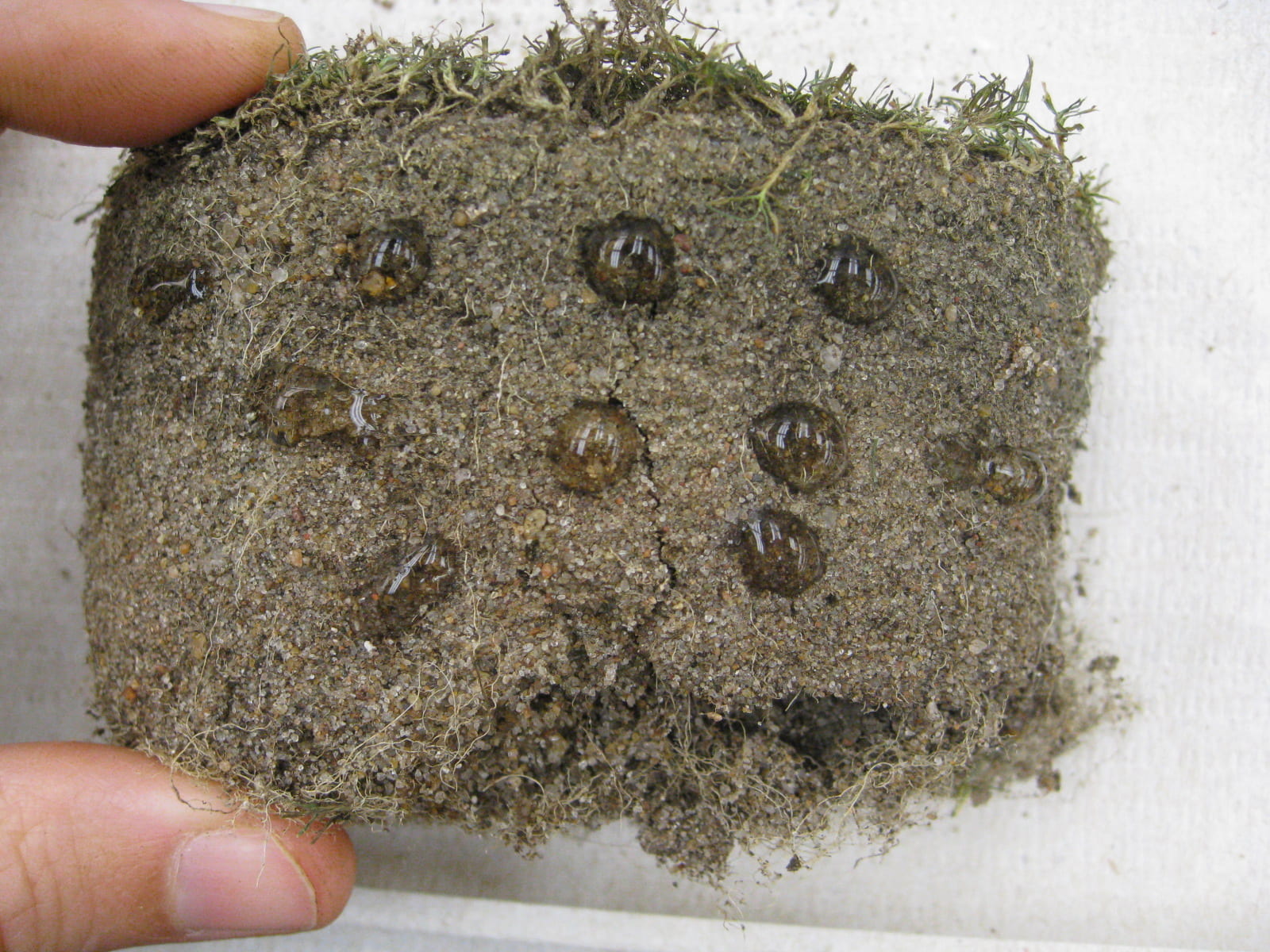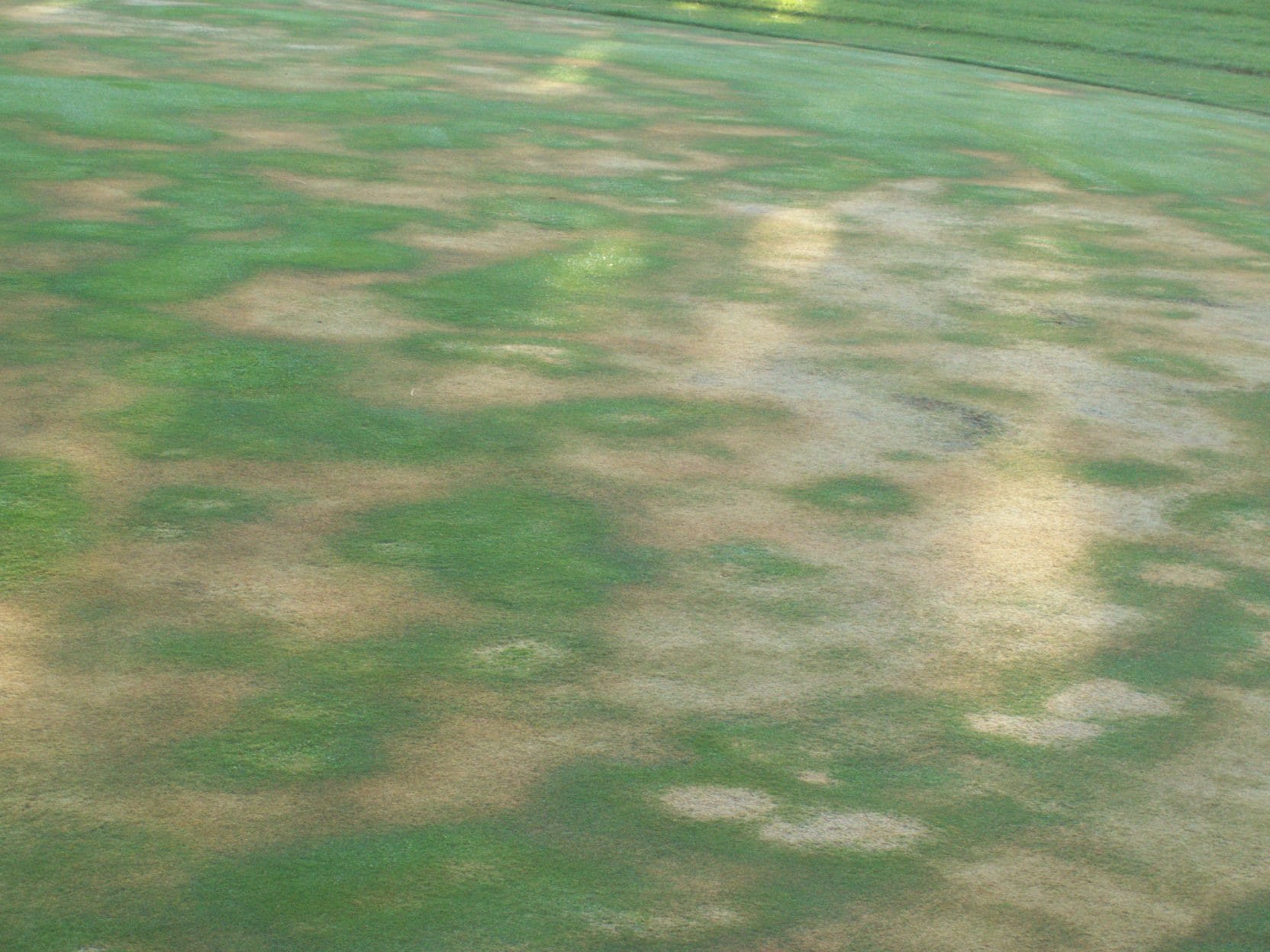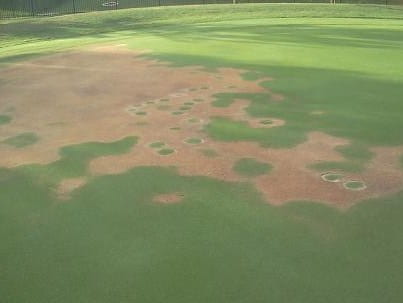(Megan Kennelly, KSU Plant Pathology)
When hot dry winds meet hydrophobic (water-repellent) soil we can get “localized dry spot” in turf. The damage can develop quickly.
Water should wick in quickly. However, when the soil is hydrophobic the droplets sit there on the surface, and they don’t soak in:
The soil becomes hydrophobic due to a build-up of water-repellent waxy substances around the soil particles.
Here are some examples of what it can look like. It often takes odd shapes with unusual wispy/hazy edges:
Below are a couple of photos from a recent sample to the KSU diagnostic lab. You can see hydrophobic area a couple of inches down in the profile. You can also see the damaged turf in the background. The submitter said it was quite patchy around the green. It’s important to check your moisture levels regularly. When you do, check it in multiple places. You can even go high-tech with a moisture meter. For more information you can check this article from a few years back, Water Management on Greens With Soil Moisture Sensors.
Thatchy soils are one predisposing condition, and you can see the thatchy layers from this particular site here (though this particular plug was NOT hydrophobic):
Thatch management and wetting agents can help prevent and alleviate localized dry spot. There is some USGA info about localized dry spot here:






